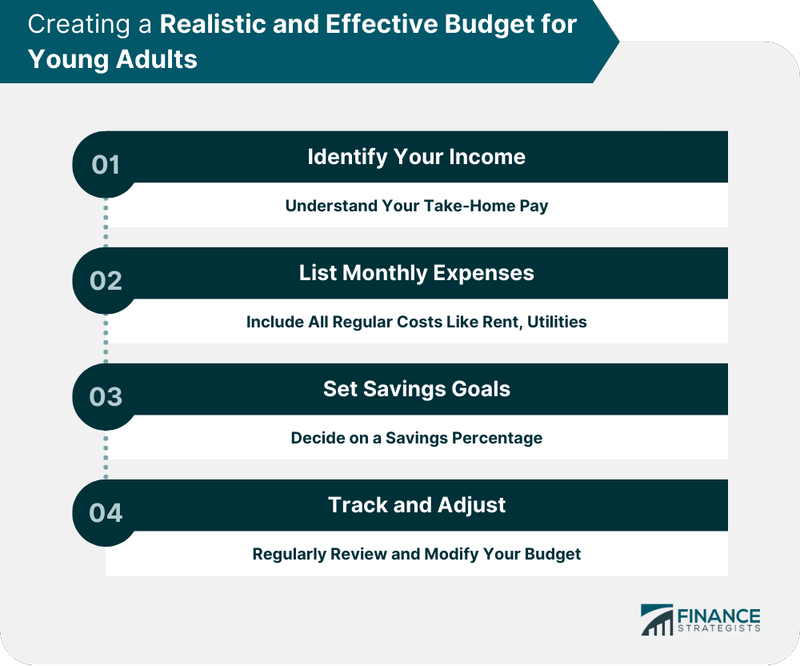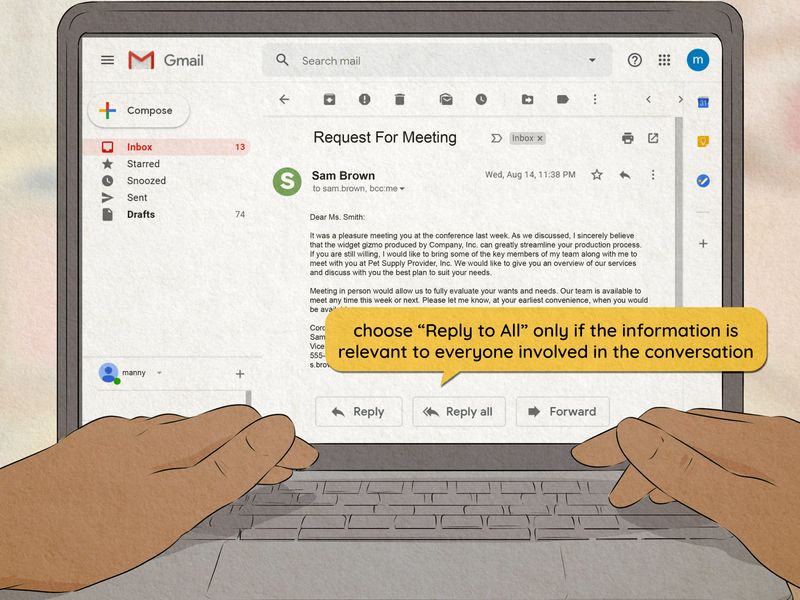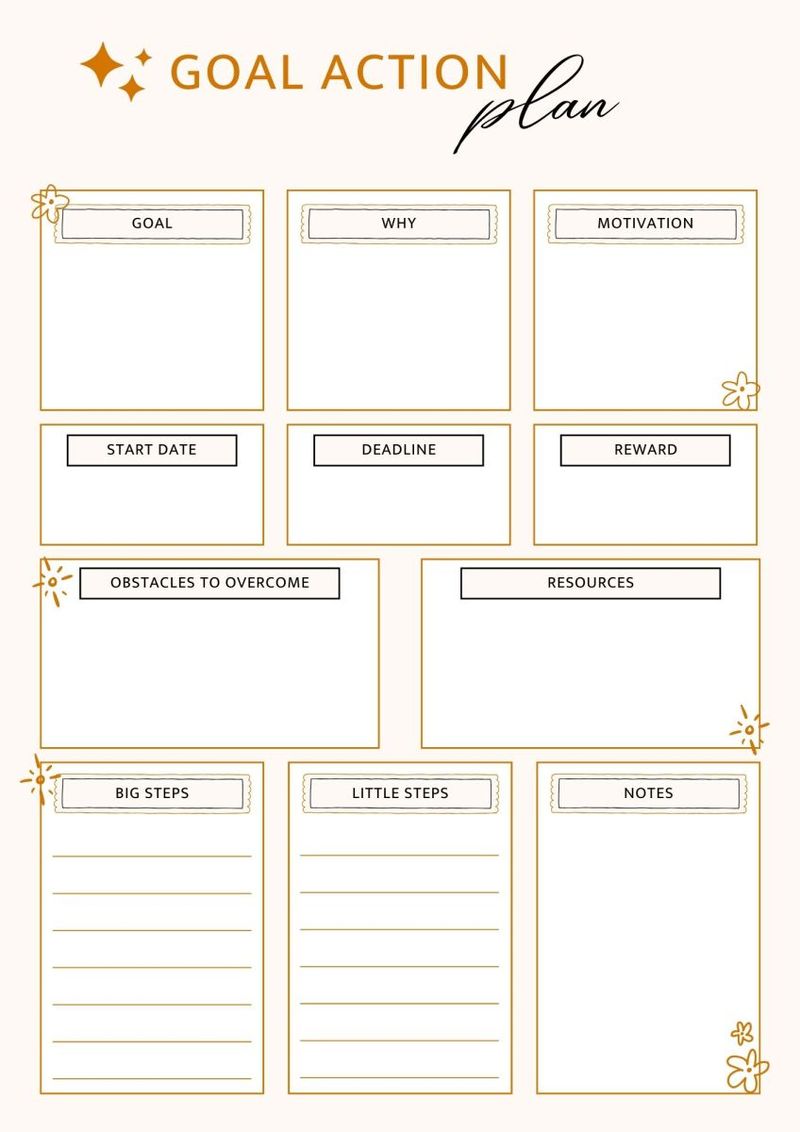In an era of rapid technological advancement, certain life skills have quietly slipped from school curricula, leaving many young adults unprepared for the complexities of modern life. Este article delves into 18 essential life skills that were once taught in schools but are now often left to chance.
These skills range from practical tasks like managing a personal budget to interpersonal skills like conflict resolution.
By understanding and addressing these gaps, we can better equip the next generation for the challenges they face. Explore these vital skills and learn why they remain crucial in navigating adulthood successfully.
1. How to manage a personal budget
Managing a personal budget is more than just crunching numbers; it’s about making informed decisions. With the rise in living costs, understanding how to allocate resources is vital. Many find themselves in financial woes simply because they weren’t taught budgeting basics.
Imagine having a budget template in school to practice with—it would set the foundation for financial literacy. This skill involves tracking income versus expenditure, distinguishing needs from wants, and setting financial goals. Schools used to teach this through practical exercises and mock financial scenarios.
Without it, many are left learning through trial and error, often leading to debt. Reviving this in education could foster a generation that’s financially savvy. Practical, real-world budgeting lessons are a necessity.
2. Conflict resolution without escalation
Conflict resolution is a cornerstone of healthy relationships, yet many stumble through it. In the past, schools emphasized communication and empathy, crucial for resolving disputes amicably. Today, without structured guidance, minor disagreements can escalate rapidly.
Imagine classrooms dedicated to role-playing conflicts, teaching students to listen actively and express themselves clearly. A generation that masters this skill can navigate personal and professional relationships with finesse. Techniques like finding common ground and de-escalation strategies were once classroom staples. Lacking these, misunderstandings often spiral out of control.
By reintroducing conflict resolution education, we empower individuals to handle disagreements constructively, fostering a more understanding society. This essential skill is missing from many modern education systems.
3. Writing a professional email
Professional email writing is an art, not just a skill. It’s the first impression in many business interactions, yet many enter the workforce without proper guidance. Schools once held workshops on formal communication, essential for career readiness.
Crafting a clear, concise email that conveys respect and professionalism is crucial. Imagine learning this in high school, alongside grammar and literature. Students practiced writing emails for various scenarios, from job applications to formal requests.
Without this foundation, many fumble, making errors that could have been easily avoided. Reviving these lessons would bridge the gap between education and the professional world, equipping students with the confidence to communicate effectively. It’s a skill that opens doors and builds networks.
4. How to read a contract
Reading a contract can feel like deciphering a foreign language. Legal jargon and complex clauses can overwhelm many, yet it’s a crucial skill for navigating adulthood. Schools once provided basic legal education, demystifying contracts and empowering students to understand their rights and obligations.
Imagine a curriculum where students dissected real-life documents, learning to identify key terms and potential pitfalls. Without this knowledge, individuals risk signing agreements they don’t fully understand, leading to unforeseen consequences.
Reintroducing contract literacy in schools would arm future generations with the tools to protect themselves legally. This skill is not just about reading but comprehending and questioning, ensuring informed decisions in significant life events.
5. Emotional regulation
Emotional regulation is vital for mental well-being, yet many struggle without guidance. In earlier educational models, emotional intelligence was nurtured alongside academics. Schools taught students to identify and manage their emotions, fostering resilience and empathy.
Imagine lessons where students practiced mindfulness and reflection, learning to pause and assess their feelings. Without these tools, emotional responses can become overwhelming, affecting relationships and decision-making. Reintegrating emotional education into schools would cultivate self-awareness and coping strategies, paving the way for more balanced lives.
This skill transcends personal growth, impacting community dynamics and workplace harmony. It’s a foundational skill for thriving in a complex world where emotional challenges arise daily.
6. Setting boundaries without guilt
Establecer límites is an act of self-respect, yet guilt often accompanies it. Schools once emphasized this, teaching students to assert their needs without feeling selfish. In a world where overcommitment is common, understanding personal limits is crucial.
Imagine classrooms where students role-played scenarios, learning to communicate boundaries clearly and kindly. Without these lessons, many struggle to say ‘no,’ leading to burnout and resentment. Reintroducing boundary education in schools would empower individuals to prioritize their well-being while maintaining healthy relationships.
It’s about balancing self-care with obligations, a skill necessary for personal and professional success. This aspect of education fosters assertiveness and respect, qualities that enhance all areas of life.
7. How interest rates really work
Interest rates influence financial decisions, yet remain a mystery to many. Schools once demystified this concept, equipping students with the knowledge to make informed choices. Understanding how interest affects loans, savings, and investments is crucial for financial independence.
Imagine classes where students calculated interest on mock loans, grasping its impact firsthand. Without this insight, individuals may fall into debt traps or miss opportunities for wealth growth. Reintroducing this education would empower future generations to navigate financial products wisely.
It’s a skill that enhances economic literacy, enabling individuals to plan for the future confidently. By understanding interest, students learn the power of compounding and the importance of informed financial decisions.
8. Public speaking with confidence
Public speaking is a fear for many, yet it opens countless opportunities. Schools once focused on this skill, developing students’ confidence and articulation. Imagine participating in debates and presentations, learning to express ideas clearly and persuasively.
Without this practice, many face anxiety when addressing groups, hindering personal and career growth. Reintroducing public speaking exercises in schools would equip students with the ability to convey thoughts with poise.
It’s a skill that transcends professions, valuable in interviews, meetings, and social interactions. By fostering this ability, we prepare individuals to lead and inspire, making their voices heard. This education builds confidence and clarity, essential traits for success in any field.
9. Meal planning and nutrition basics
Meal planning and nutrition are cornerstones of healthy living, yet many lack this knowledge. Schools once included home economics, teaching students to prepare balanced meals and understand nutritional needs. Imagine classes where students crafted meal plans, considering dietary requirements and budget constraints.
Without this education, individuals may rely on convenience foods, compromising health. Reintroducing these basics would empower students to make informed dietary choices, fostering lifelong wellness. It’s about understanding food labels, portion sizes, and nutritional balance.
This skill supports physical health and financial savings, reducing reliance on takeout. By prioritizing nutrition education, we cultivate a culture of mindful eating and well-being, essential for thriving in a fast-paced world.
10. Doing taxes and understanding paychecks
Taxes are inevitable, yet understanding them is not innate. Schools once offered lessons in financial literacy, including tax preparation and paycheck interpretation. Imagine students learning to fill out tax forms, understanding deductions and credits.
Without this knowledge, many face confusion when entering the workforce, potentially missing out on refunds or overpaying. Reintroducing tax education would demystify this annual obligation, empowering individuals to manage their finances responsibly.
It’s about navigating tax brackets, understanding withholdings, and planning for tax season. This skill enhances economic independence, reducing reliance on costly tax services. By equipping students with this knowledge, we prepare them for responsible adulthood, enhancing financial confidence and literacy.
11. How to interview well
Interviewing well is an art that opens doors to opportunities. Schools once held mock interviews, preparing students for this crucial aspect of career entry. Imagine practicing with peers, receiving feedback on body language, and refining answers.
Without this preparation, many face interviews with uncertainty, affecting performance. Reintroducing interview skills in education would enhance career readiness, equipping students with the confidence to present themselves effectively. It’s about conveying strengths, understanding company culture, and asking insightful questions.
This skill fosters self-awareness and adaptability, essential for thriving in competitive job markets. By prioritizing interview education, we empower the next generation to succeed in their career pursuits, enhancing employability and confidence.
12. Navigating workplace dynamics
Workplace dynamics can be complex, yet understanding them is key to career success. Schools once taught interpersonal skills, preparing students for professional environments. Imagine classes focused on teamwork, communication, and conflict resolution within workplace settings.
Without this guidance, many struggle to adapt, impacting job satisfaction and performance. Reintroducing workplace navigation skills would empower students to thrive in diverse teams, fostering collaboration and respect. It’s about understanding hierarchy, embracing diversity, and managing stress.
This education supports career growth, enhancing adaptability and resilience. By equipping students with these skills, we cultivate a workforce ready to meet the challenges and opportunities of modern careers, promoting a healthy and productive work environment.
13. Handling rejection without spiraling
Rejection is a part of life, yet many struggle to cope with it constructively. Schools once addressed emotional resilience, teaching students to view setbacks as growth opportunities. Imagine lessons on processing emotions and reframing negative experiences.
Without this guidance, rejection can lead to self-doubt and demotivation. Reintroducing resilience education would empower students to handle challenges with grace, fostering perseverance and self-improvement. It’s about understanding that rejection is not a reflection of self-worth but an invitation to grow.
This skill builds emotional strength, crucial for personal and professional development. By prioritizing emotional resilience, we prepare individuals to navigate life’s ups and downs with confidence and a positive outlook.
14. Time management that actually works
Time management is essential for productivity, yet elusive without proper training. Schools once emphasized this skill, teaching students to prioritize tasks and manage schedules effectively. Imagine classes where students practiced creating timetables, balancing academics, and extracurriculars.
Without this foundation, many struggle with procrastination, affecting performance and well-being. Reintroducing time management education would equip students with strategies to optimize their days, fostering efficiency and balance.
It’s about setting goals, breaking tasks into manageable steps, and avoiding burnout. This skill enhances focus and reduces stress, supporting academic and personal success. By cultivating time management abilities, we prepare individuals to thrive in fast-paced environments, achieving their aspirations with clarity and determination.
15. Long-term goal setting
Long-term goal setting is a roadmap to success, yet often overlooked in education. Schools once guided students in envisioning futures, creating actionable plans for achievement. Imagine classes where students mapped career paths, identifying steps to reach aspirations.
Without this guidance, goals can seem elusive, leading to drift and indecision. Reintroducing goal-setting education would empower students to transform ambitions into reality, fostering motivation and perseverance. It’s about setting realistic milestones, tracking progress, and adapting plans.
This skill supports personal growth and career development, enhancing focus and direction. By cultivating goal-setting abilities, we prepare individuals to navigate life’s journey with purpose and passion, achieving dreams through strategic planning and effort.
16. How to change a tire or check oil
Car maintenance may seem mundane, yet it empowers independence. Schools once offered auto shop classes, teaching students basic vehicle upkeep like changing a tire or checking oil. Imagine hands-on lessons where students gained confidence in handling minor car issues.
Without this knowledge, individuals may become reliant on costly services for simple tasks. Reintroducing car maintenance education would enhance self-reliance, saving time and money. It’s about understanding vehicle care, ensuring safety, and reducing breakdowns.
This skill supports practical living, fostering confidence and problem-solving in everyday situations. By prioritizing auto skills, we equip individuals to tackle common challenges with assurance, enhancing independence and readiness for life’s unexpected turns.
17. Evaluating news and media sources
Media literacy is crucial in an age of information overload. Schools once taught students to critically evaluate news sources, discerning fact from misinformation. Imagine classes where students analyzed articles, learning to identify bias and credibility.
Without this education, individuals may fall prey to false narratives, impacting beliefs and decisions. Reintroducing media literacy would empower students to navigate the digital landscape wisely, fostering informed citizenship. It’s about questioning sources, cross-referencing information, and understanding media influence.
This skill is essential for democratic engagement and informed decision-making, promoting a society that values truth and accountability. By prioritizing media evaluation, we prepare individuals to engage critically with the world, enhancing awareness and understanding.
18. Resisting peer pressure in adult form
Peer pressure doesn’t vanish with age; it evolves. Schools once addressed this by teaching students to stand firm in their values. Imagine lessons where students role-played scenarios, learning to assertively decline without alienating peers.
Without this guidance, individuals may succumb to pressures that conflict with personal principles. Reintroducing education on resisting peer pressure would empower individuals to maintain integrity in social and professional settings. It’s about confidence, self-awareness, and respectful communication.
This skill nurtures authenticity and resilience, crucial for personal growth and relationship management. By prioritizing this education, we equip individuals to navigate social dynamics with assurance, upholding their values in diverse environments.



















